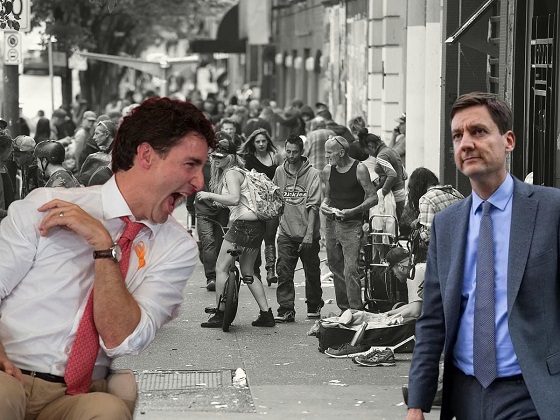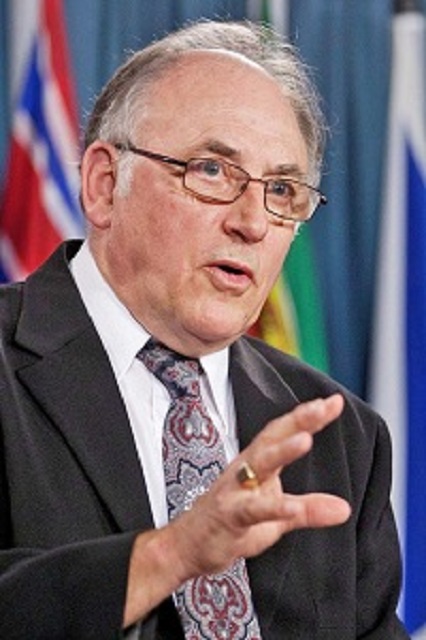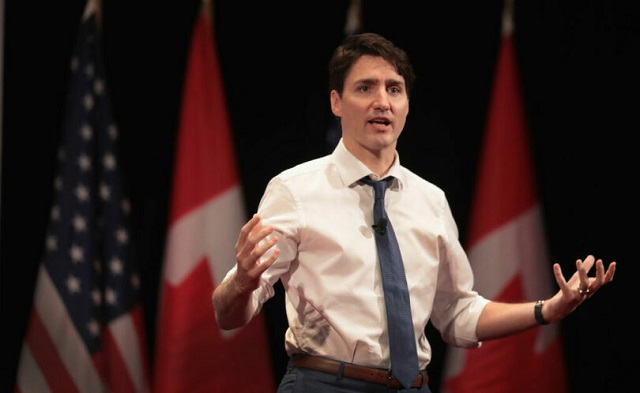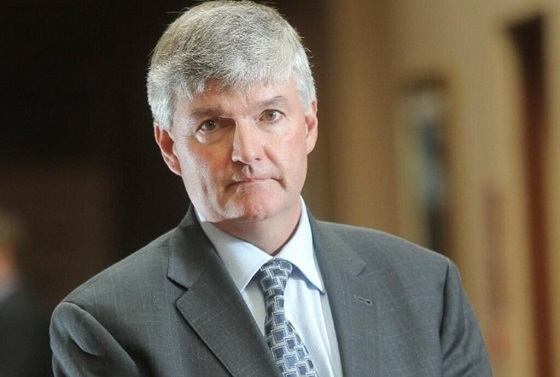National
The documentary rocking Vancouver and shocking Canadians
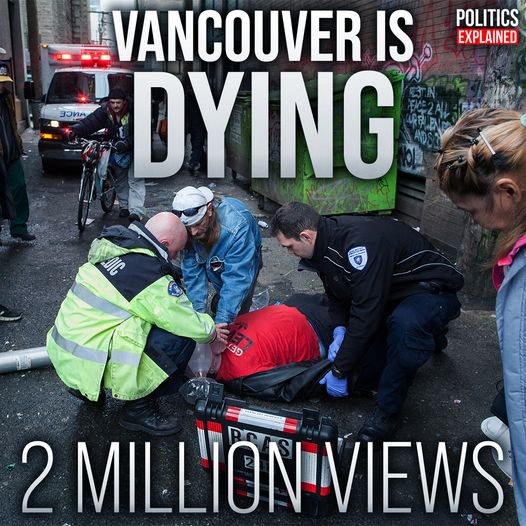
From Aaron Gunn of Politics Explained
SUBSCRIBE: ![]() / aarongunnbc
/ aarongunnbc
SUPPORT ME: https://www.aarongunn.ca/contribute
FOLLOW ME: Instagram: https://www.instagram.com/aarongunnbc Facebook: https://www.facebook.com/aarongunn.ca Twitter: https://www.twitter.com/aarongunn
AARON IS AN INDEPENDENT JOURNALIST, AND ADVOCATE FOR TAXPAYERS AND COMMON SENSE
Aaron is Producer/Director of the hit online series, Politics Explained.
His videos have targeted, among others, the Insurance Corporation of British Columbia (ICBC) for dramatically raising rates on BC drivers; Victoria Mayor Lisa Helps for tearing down the statue of Sir John A. Macdonald; Canada’s Justice System for its treatment of child murderers; and Prime Minister Justin Trudeau for his massive deficits, destructive energy policy and obsession with political correctness.
Throughout, Aaron has demonstrated his commitment to lower taxes, less waste and a stronger Canada. His content, which he writes and produces himself, is funded by the generous contributions of ordinary, taxpaying Canadians. His videos, which are filmed across the country, have together been shared hundreds of thousands of times.
Prior to his work as Spokesperson for BC Proud (2017-19), Aaron worked for the Canadian Taxpayers Federation (CTF) where he founded and became Executive Director of the Generation Screwed initiative, fighting back against government debt and its impact on future generations.
By the end of his tenure at the CTF, Generation Screwed had achieved a considerable online following and established a physical presence at over 30 university campuses across Canada.
Aaron has a Bachelor’s Degree of Commerce from the University of Victoria. He served three years in the Canadian Army Reserves and operated his own company, which he founded at age 15, for over ten years. Victoria, BC is home.
For media requests or to inquire about public speaking, contact Aaron here.
Censorship Industrial Complex
Jordan Peterson, Canadian lawyer warn of ‘totalitarian’ impact of Trudeau’s ‘Online Harms’ bill

From LifeSiteNews
“You don’t even know who it is… you can be accused regardless of your intent, regardless of the factual [reality], or [the] reality of your utterance, by people who do not have to identify themselves or take any responsibility whatsoever if their denunciation turns out to be false,”
In a recent podcast episode, well-known Canadian psychologist Jordan Peterson and Queen’s University law professor Bruce Pardy blasted Prime Minister Justin Trudeau and his government over Bill C-63, the Online Harms Act, a proposed piece of legislation which, if passed, could lead to large fines and even jail time for vaguely defined online “hate speech” infractions.
“Recently, the Trudeau woke mob has managed to extend themselves even further into the legal nether lands with a new bill called C-63, which isn’t law in Canada yet, but is soon likely to be, and it is the most totalitarian Western bill I’ve ever seen by quite a large margin and in multiple dimensions,” said Peterson in a recent Everything You Need to Know video podcast dated April 14, which was posted on his YouTube channel.
“And that was my conclusion, upon reading it and then my conclusion, upon rereading it and rereading it again, because I like to make sure I have these things right.”
Joining Peterson was Canadian lawyer Bruce Pardy and podcaster Konstantin Kisin. Pardy serves as executive director of Rights Probe, a law and liberty thinktank, and professor of law at Queen’s University in Kingston, Ontario. As for Kisin, he is a Russian-British satirist, social commentator, who serves as co-host of the TRIGGERnometry YouTube show.
Peterson noted that in his view, Bill C-63 is “designed… to produce a more general regime for online policing.”
“To me, that’s what it looks like,” he said.
The trio spent the better part of two hours discussing Bill C-63, which was introduced by Justice Minister Arif Virani in the House of Commons in February and was immediately blasted by constitutional experts as troublesome.
Among other things, the bill calls for the creation of a Digital Safety Commission, a digital safety ombudsperson, and the Digital Safety Office, all tasked with policing internet content, including already illegal internet content such as child exploitation material.
However, the bill also seeks to police “hate” speech online with broad definitions, severe penalties, and dubious tactics.
Details of the new legislation to regulate the internet show the bill could lead to more people jailed for life for “hate crimes” or fined $50,000 and jailed for posts that the government defines as “hate speech” based on gender, race, or other categories.
Right at the start of the interview, Peterson noted that when thinking about Bill C-63, he thought of it as a “real masterpiece of right thinking, utopian, resentful foolishness.”
Due to the fact that the bill allows for accusations to be filed by anyone, and that there is no obligation for the government to reveal the name of the accuser to the accused, Peterson warned that Bill C-63 could see widespread corruption by individuals acting in bad faith.
“You don’t even know who it is… you can be accused regardless of your intent, regardless of the factual [reality], or [the] reality of your utterance, by people who do not have to identify themselves or take any responsibility whatsoever if their denunciation turns out to be false,” he warned.
Pardy chimed in to say that when it comes to Bill C-63, Canadians “don’t even know what the rules are going to be.”
“Basically, it just gives the whole control of the thing to our government agency, to the bureaucrats, to do as they think,” he said.
Regarding Pardy’s remarks, Peterson observed that the Trudeau government is effectively “establishing an entirely new bureaucracy” with an “unspecified range of power with non-specific purview that purports to protect children from online exploitation” but has the possibility of turning itself into an internet “policing state.”
Bill uses protecting kids as ‘cover,’ will have a ‘chilling effect upon speech’
Pardy told Peterson that one of the main issues with C-63, in his view, is that it “starts with the cover of protecting children… from online harm,” but that beneath this “great cover” it “enables” a crackdown on the “very idea of free speech.”
Pardy warned that Bill C-63 will see the return of an “old” Human Rights Act provision, titled Section 13, that was repealed by the Conservative government of Prime Minister Stephen Harper in 2013 after it was found to have violated the right to free expression.
“One of the problems with the human rights regime is that complaints can be made very, very easily without a lawyer, without any cost,” said Pardy. “And because the Canadian federal government has jurisdiction over the internet, this section is going to authorize complaints of all kinds to be made against people who are speaking their minds online…”
Pardy noted that the revival of this type of process will “have a chilling effect upon speech, no question about it,” and it risks ending the “idea of free speech itself.”
Pardy observed that society already has a mechanism to protect kids, despite modern society’s idea that the “government is responsible for keeping people safe.”
“That’s ignoring the best mechanism we already have to keep children safe, which is their parents, right. It’s assuming that this is what this state is for if you went up to somebody on the street, anybody at random,” he said.
“We’ve lost the proposition that we’ve made a choice to have this large overwhelming government tell us what to do in place of all of the other things we used to have.”
Speaking further, Pardy observed that what laws like Bill C-63, and many other laws already passed by the Trudeau Liberals such as Bill C-16, are attempting to do, is change the way people perceive how laws should be enforced.
“The ethos of managerialism has supplanted the rule of law as the basic idea instead of the rule of law,” said the law professor.
“We have rule by law now, which means that the law is nothing more than a tool for the government to use to create a law on a whim,” he continued, adding that this is “not the way the Western legal system used to work.”
Criminalizing ‘hateful’ speech is ‘troublesome’ if bureaucrats decide what is ‘hateful’
In a recent opinion piece critical of Bill C-63, law professor Dr. Michael Geist said that the text of the bill is “unmistakable” in how it will affect Canadians’ online freedoms.
Geist noted that the new bill will allow a new digital safety commission to conduct “secret commission hearings” against those found to have violated the law.
“The poorly conceived Digital Safety Commission lacks even basic rules of evidence, can conduct secret hearings, and has been granted an astonishing array of powers with limited oversight. This isn’t a fabrication,” Geist wrote.
He observed specifically how Section 87 of the bill “literally” says “the Commission is not bound by any legal or technical rules of evidence.”
Peterson noted that giving “hate speech” such prominence and such a broad definition is “troublesome” as it will be up to bureaucrats to decide what is “hateful.”
“The whole notion of hateful speech, that’s troublesome. One, for me, because there’s an obvious element of subjective judgment in it,” he said, questioning who gets to decide what is “hateful” and on what “grounds” do they have the authority to make such a judgement.
Peterson warned that if Canada decides to “open the door” of tasking bureaucrats with determining what is or isn’t “hateful” speech, and if it blocks transparency on who is making accusations of hate, it “leads us to anonymous denunciation,” which he sees as dangerous because it fails to hold complainants accountable.
To make his point, Peterson said that “everybody, including every school child who’s like older than three, and maybe even three,” understands that there’s almost “nothing worse than a snitch, and all children are wise enough to know that.”
“Even if you are being bullied at school, let’s say, it has to get pretty damn brutal and bad before going to report it to the authorities is acceptable or justifiable,” he said.
“Now you know you can debate about the conditions under which that should or shouldn’t occur. My point is that even kids know that.”
Geist has noted that when it comes to Bill C-63, the “most obvious solution” to amend the bill “is to cut out the Criminal Code and Human Rights Act provisions, which have nothing to do with establishing internet platform liability for online harms.”
Giving historcal examples for why Bill C-63 worries him, Peterson explained that “we certainly know from places like the Soviet Union, just exactly what happens, or East Germany, what happens when one-third of the citizens, which was the case in East Germany, become government informers.”
“…Trust is gone. The worst people have the upper hand. It’s a complete catastrophe… Now in Bill C-63, you have a concatenation of these problems… now you know hate speech is going to be constrained and it can be identified by anonymous informants,” forecasted the psychologist.
Indeed, it is not just Peterson, Pardy and Geist who are warning of Bill C-63, but major law groups as well.
The Justice Centre for Constitutional Freedoms (JCCF) has said Bill C-63 is “the most serious threat to free expression in Canada in generations. This terrible federal legislation, Bill C -63, would empower the Canadian Human Rights Commission to prosecute Canadians over non-criminal hate speech.”
JCCF president John Carpay recently hand-delivered a petition with 55,000-plus signatures to Canada’s Minister of Justice and all MPs, urging them to reconsider their sponsoring of the law.
Business
Taxpayers criticize Trudeau and Ford for Honda deal

From the Canadian Taxpayers Federation
Author: Jay Goldberg
The Canadian Taxpayers Federation is criticizing the Trudeau and Ford governments to for giving $5 billion to the Honda Motor Company.
“The Trudeau and Ford governments are giving billions to yet another multinational corporation and leaving middle-class Canadians to pay for it,” said Jay Goldberg, CTF Ontario Director. “Prime Minister Justin Trudeau is sending small businesses bigger a bill with his capital gains tax hike and now he’s handing out billions more in corporate welfare to a huge multinational.
“This announcement is fundamentally unfair to taxpayers.”
The Trudeau government is giving Honda $2.5 billion. The Ford government announced an additional $2.5 billion subsidies for Honda.
The federal and provincial governments claim this new deal will create 1,000 new jobs, according to media reports. Even if that’s true, the handout will cost taxpayers $5 million per job. And according to Globe and Mail investigation, the government doesn’t even have a proper process in place to track whether promised jobs are actually created.
The Parliamentary Budget Officer has also called into question the government’s claims when it made similar multi-billion-dollar handouts to other multinational corporations.
“The break-even timeline for the $28.2 billion in production subsidies announced for Stellantis-LGES and Volkswagen is estimated to be 20 years, significantly longer than the government’s estimate of a payback within five years for Volkswagen,” wrote the Parliamentary Budget Officer said.
“If politicians want to grow the economy, they should cut taxes and red tape and cancel the corporate welfare,” said Franco Terrazzano, CTF Federal Director. “Just days ago, Trudeau said he wants the rich to pay more, so he should make rich multinational corporations pay for their own factories.”
-

 conflict2 days ago
conflict2 days agoCol. Douglas Macgregor torches Trump over support for bill funding wars in Ukraine and Israel
-

 Censorship Industrial Complex1 day ago
Censorship Industrial Complex1 day agoNow We Are Supposed to Cheer Government Surveillance?
-

 Alberta1 day ago
Alberta1 day agoRed Deer Doctor critical of Alberta’s COVID response to submit report to Danielle Smith this May
-

 Alberta15 hours ago
Alberta15 hours agoActivity-Based Hospital Funding in Alberta: Insights from Quebec and Australia
-

 Health2 days ago
Health2 days agoTransgender activists are threatening the author of scathing UK report on child ‘sex changes’
-

 Business13 hours ago
Business13 hours agoUN plastics plans are unscientific and unrealistic
-
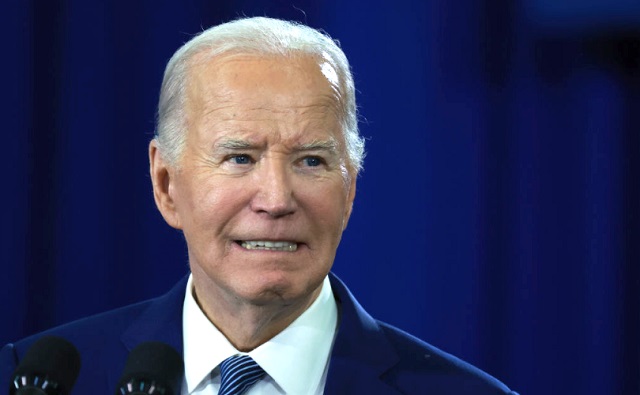
 International2 days ago
International2 days agoBiden admin expands Title IX to include ‘gender identity,’ sparking conservative backlash
-

 Business12 hours ago
Business12 hours agoTaxpayers criticize Trudeau and Ford for Honda deal

